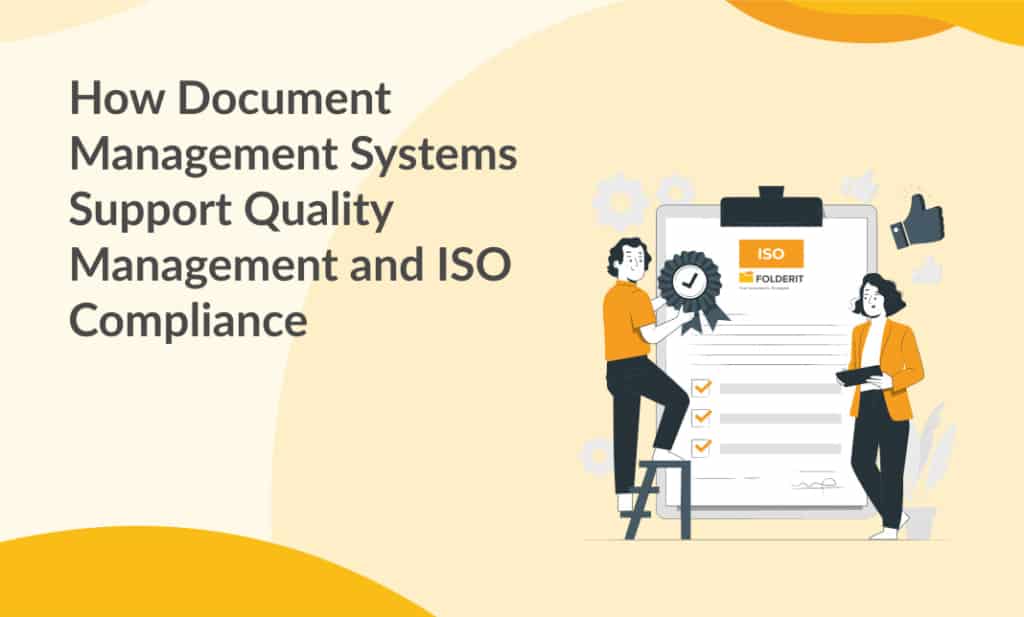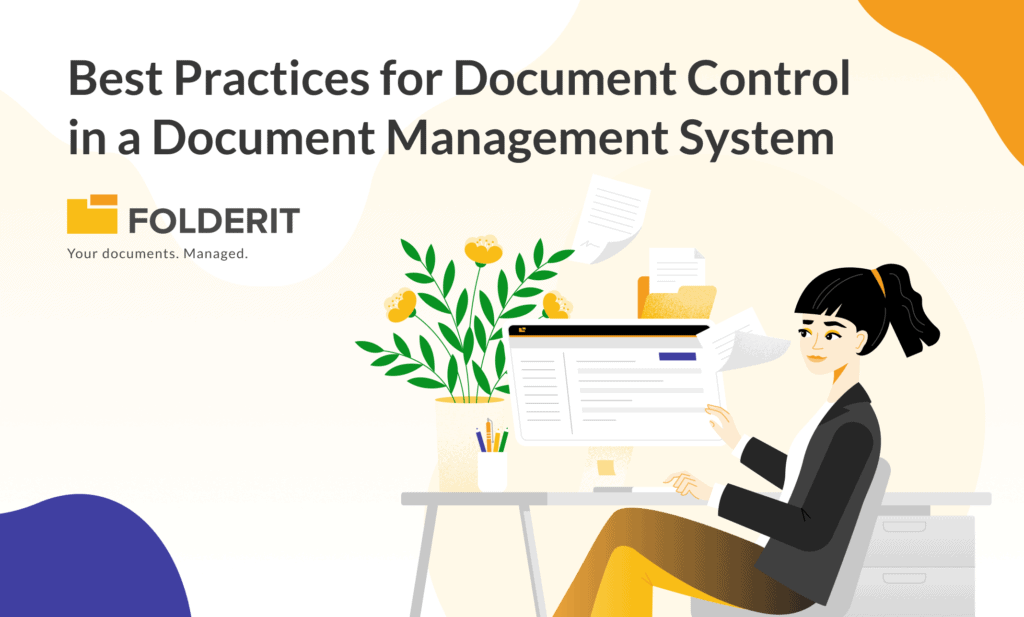In today’s fast-paced business environment, maintaining high-quality standards and compliance with international regulations is not just a luxury—it’s a necessity. This is where Document Management Systems (DMS) come into play. DMS are software solutions that help organizations manage, store, and track their digital documents.
For companies interested in improving compliance it is important to understand how DMS supports quality management and ISO compliance, particularly in the context of ISO 9001:2015, the international standard for a quality management system (QMS).
Exploring Document Management Systems
A Document Management System (DMS) is a digital solution designed to store, manage, and track electronic documents and images of paper-based information. It serves as a central repository where all documents are kept, making document retrieval quick and easy. Key features of a DMS include version control, document tracking, and access control, which are critical in maintaining document integrity and security.
Importance of Quality Management
Quality management is a structured approach to organizational management that seeks to improve the quality of products and services through ongoing refinements in response to continuous feedback. ISO 9001:2015 is the international standard that specifies requirements for a quality management system. Organizations use the standard to demonstrate their ability to consistently provide products and services that meet customer and regulatory requirements.
ISO compliance is not just about meeting regulatory requirements—it’s about improving processes, efficiency, and customer satisfaction. Compliance with ISO standards demonstrates that an organization is committed to quality, customer satisfaction, and continual improvement.
ISO Standards and Compliance
The International Organization for Standardization (ISO) is an independent, non-governmental international organization that develops standards to ensure the quality, safety, and efficiency of products, services, and systems. ISO 9001:2015, in particular, sets out the criteria for a quality management system and is based on a number of quality management principles including a strong customer focus, the involvement of top management, a process approach, and continual improvement.
How Document Management Systems Support Quality Management
A DMS supports quality management in several ways. First, it creates a centralized repository for all documents, ensuring easy access and retrieval. This is crucial for maintaining document integrity and security. Second, the version control feature in a DMS ensures that only the latest approved versions of documents are accessible, preventing confusion and errors. Third, a DMS enables document review and approval workflows, ensuring that documents go through the necessary checks before they are finalized. This is particularly important for compliance with ISO standards, which require rigorous document control.
DMS in Risk Management
Risk management is a critical aspect of quality management and ISO compliance. A DMS supports risk management processes by providing a platform to document and analyze potential risks. It also aids in implementing control measures to mitigate these risks, such as access controls, encryption, and data backup. Moreover, a DMS enables the monitoring and tracking of risk mitigation actions, ensuring that risks are effectively managed and compliance with ISO standards is maintained.
DMS in Audits and Inspections
Audits and inspections are integral to ISO compliance. A DMS assists in these processes by organizing and categorizing documents according to ISO requirements, facilitating easy retrieval of documents during audits. It also enables tracking and documenting audit findings and corrective actions, supporting the organization’s efforts to improve its processes and maintain ISO compliance.
DMS in Training and Competence Management
Training and competence management is another area where a DMS can provide significant support. A DMS helps in creating and managing training materials, ensuring they are up-to-date and easily accessible. It also enables tracking and documenting employee training records, which is crucial for demonstrating compliance with ISO standards. Furthermore, a DMS supports competence management by providing a platform to assess and track employees’ skills and qualifications.
How Folderit Assists in Quality Management and ISO Compliance
Folderit is a leading provider of cloud-based Document Management Systems, designed with the needs of businesses in mind. It offers a range of features that support quality management and ISO compliance. Folderit’s DMS provides a secure and centralized platform for storing, managing, and tracking documents. It offers robust version control, ensuring that only the latest, approved versions of documents are accessible.
Folderit also supports risk management processes by providing a platform to document and analyze potential risks. Its advanced OCR search feature ensures quick and easy retrieval of documents, which is crucial during audits and inspections. Furthermore, Folderit’s DMS allows for the setting up of automated workflows, ensuring that documents go through the necessary checks before they are finalized.
Wrapping Up
A Document Management System plays a vital role in supporting quality management and ISO compliance. From facilitating document control to aiding in risk management, audits, inspections, and training management, a DMS provides the tools and features necessary for an organization to achieve operational excellence and meet ISO standards. Implementing a robust DMS like Folderit is not just a strategic move—it’s a necessity for organizations aiming to uphold high-quality standards and maintain ISO compliance. With Folderit, you have a reliable partner that understands your needs and provides solutions that help you maintain quality and compliance with ease.



